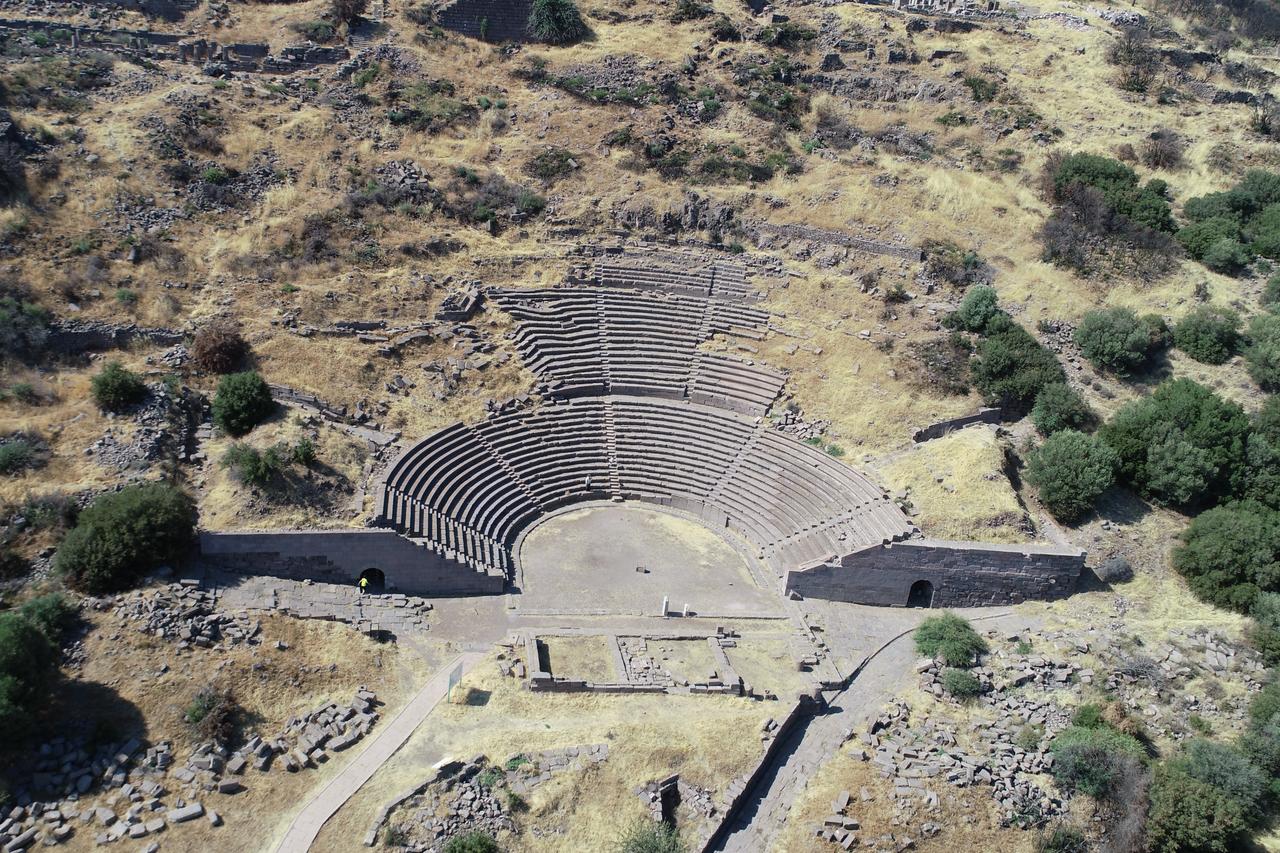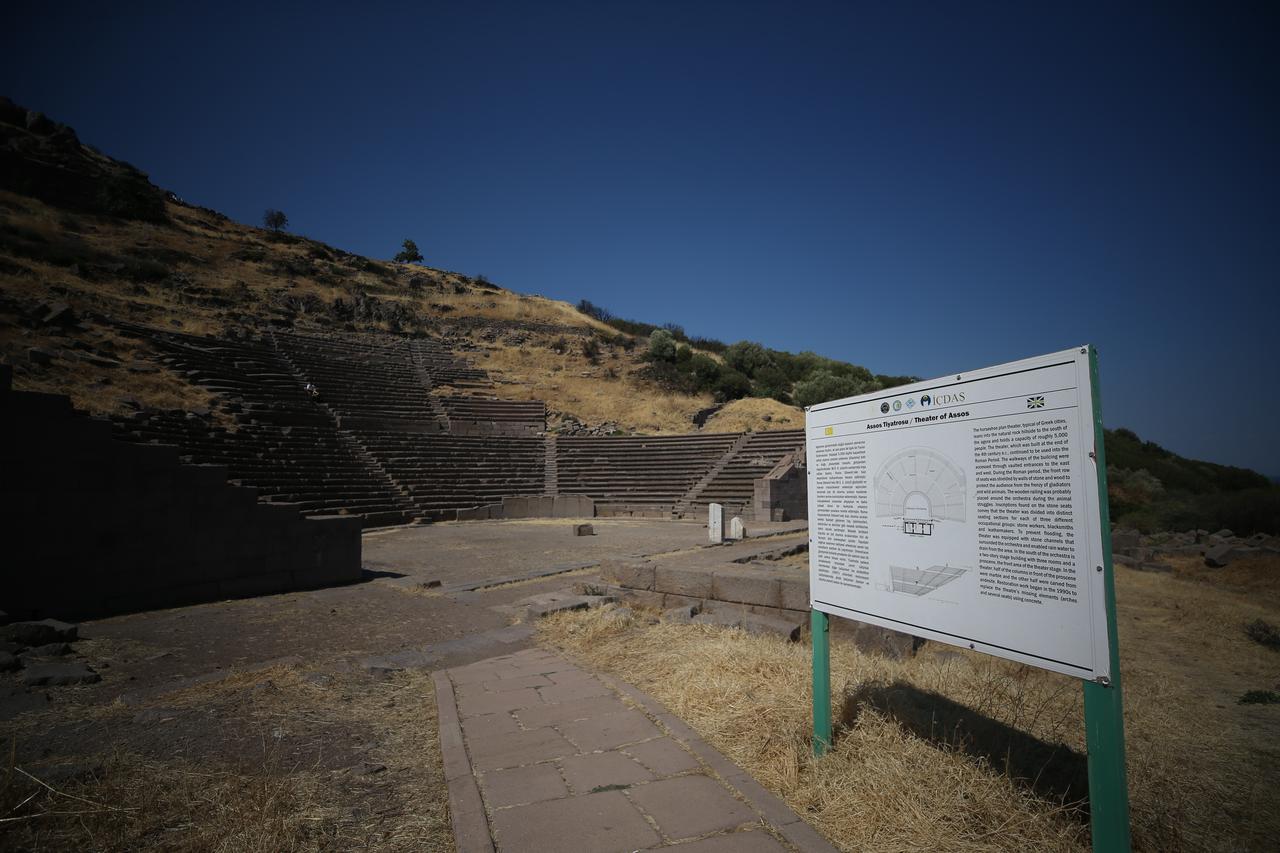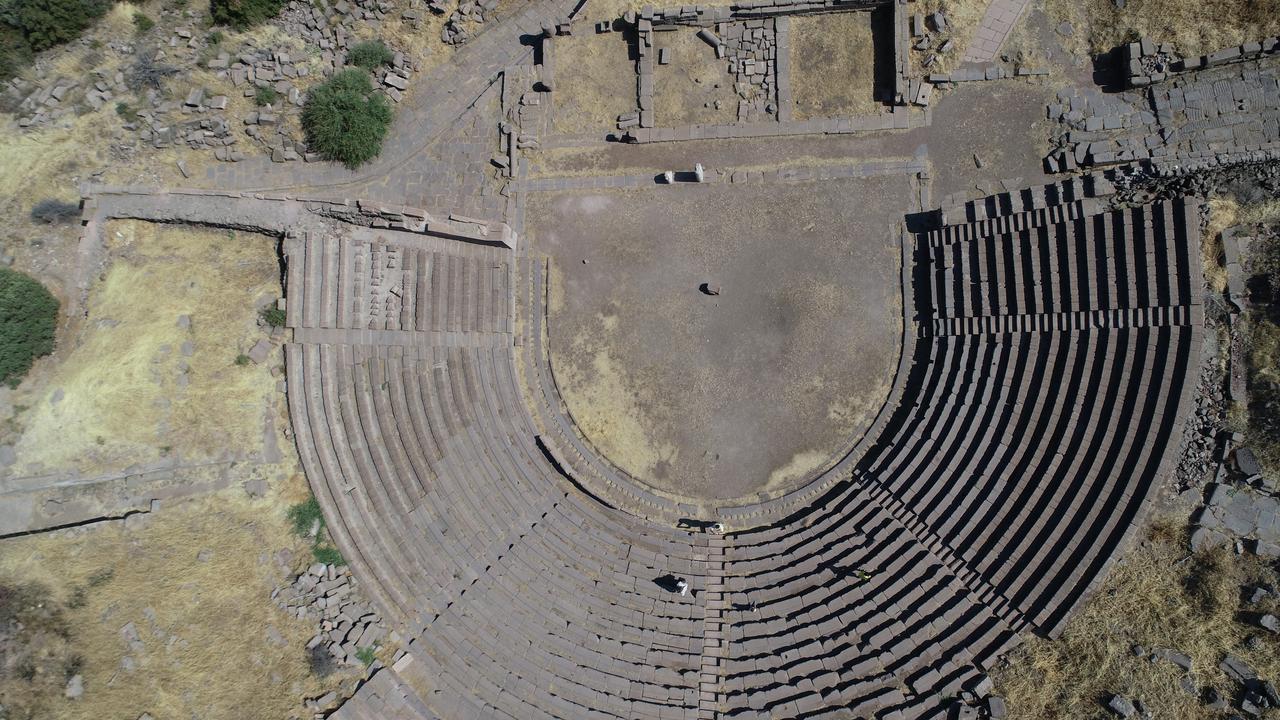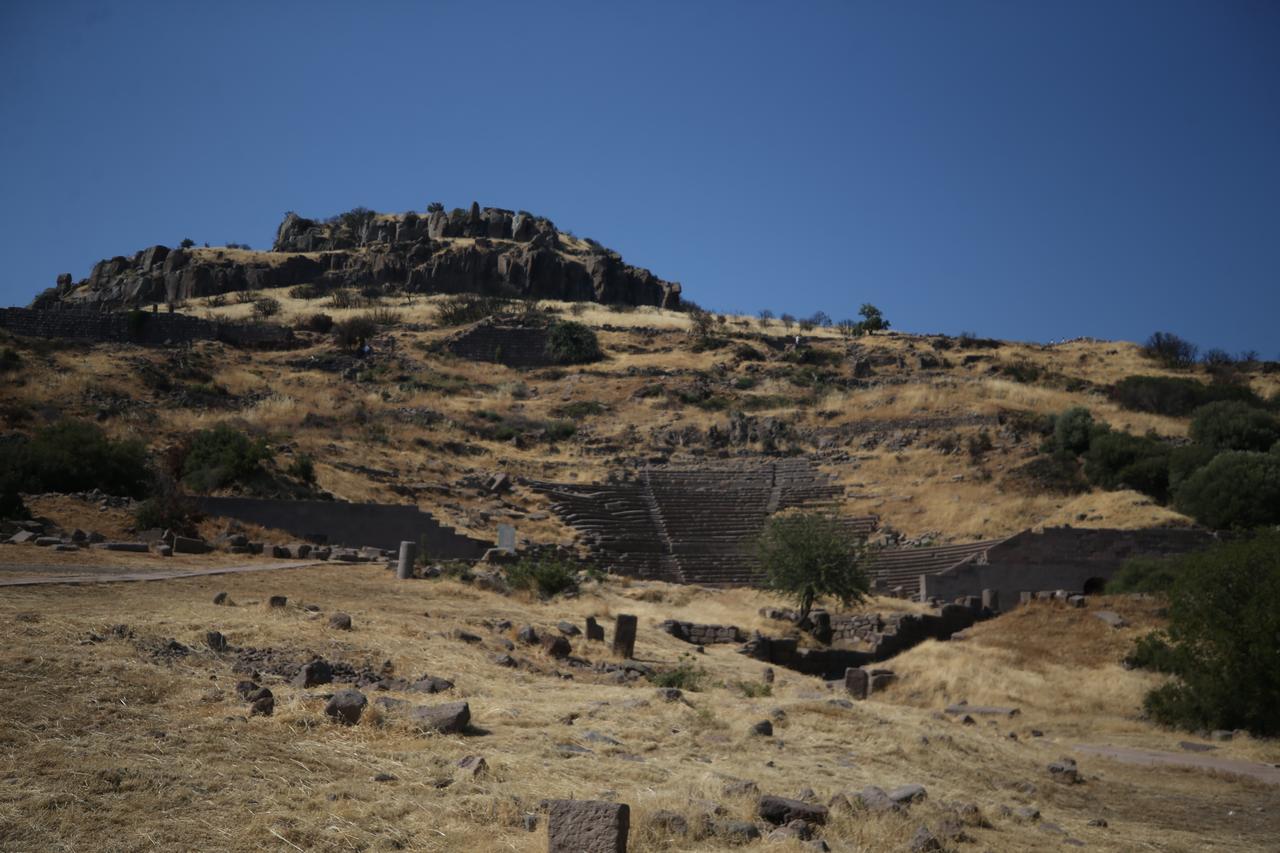
A major restoration project is nearing completion in the ancient city of Assos, located in the Ayvacik district of Türkiye’s Canakkale province. The effort aims to revive a 2,200-year-old Greek theater and transform it into a prominent cultural destination, potentially hosting summer performances such as plays and concerts.
Perched on a volcanic hill overlooking the Aegean island of Lesbos, Assos was established at the southern edge of the ancient region known as Troas. Its location within the modern village of Behramkale has long made it a site of historical and academic significance.

Assos has a deep intellectual legacy. The ancient port city was once described as a “center of learning” and famously hosted Aristotle, who founded a school of philosophy there. His research in zoology, biology, and botany added to the city’s prestige in the ancient world.
Ongoing excavations, first launched in the 1800s by American archaeologists and later resumed by Turkish teams in 1981, have brought to light a wealth of structures within the city. Among these are a council house (bouleuterion), a marketplace (agora), a gymnasium, a necropolis, a harbor, and notably, the Temple of Athena—one of the earliest Doric temples built in Anatolia during the Archaic Period.

The theater of Assos, constructed in the late fourth century B.C., was built into a natural rock slope just south of the agora. Its horseshoe-shaped layout reflects the typical design of Greek theaters, which were used for dramatic performances and civic gatherings.
In the Roman era, the theater underwent several adaptations. Railings were installed to safeguard audiences during gladiator and animal combats, while certain rows were allocated to local professional guilds such as stonemasons, blacksmiths, and tanners. One upper seating section was even reserved for followers of Serapis, an Egyptian deity worshipped across the Roman Empire.
A two-story stage building, known in ancient Greek as the proskenion, stood to the south of the orchestra. While the front half-columns of the structure were made of marble, the remaining parts were built from andesite stone. Some restoration work was previously carried out in the 1990s to reinforce missing sections.

Professor Nurettin Arslan, who leads the excavation team, stated that after receiving formal approval, the theater’s restoration is expected to begin soon. He explained that once the project is completed, Assos could stand out as one of the key cultural sites in both Canakkale province and Türkiye more broadly.
Professor Arslan emphasized the unique preservation status of the city among other ancient settlements in the region. He noted that the restored theater would serve as a long-term venue for community events, aiming to promote sustainable cultural engagement.